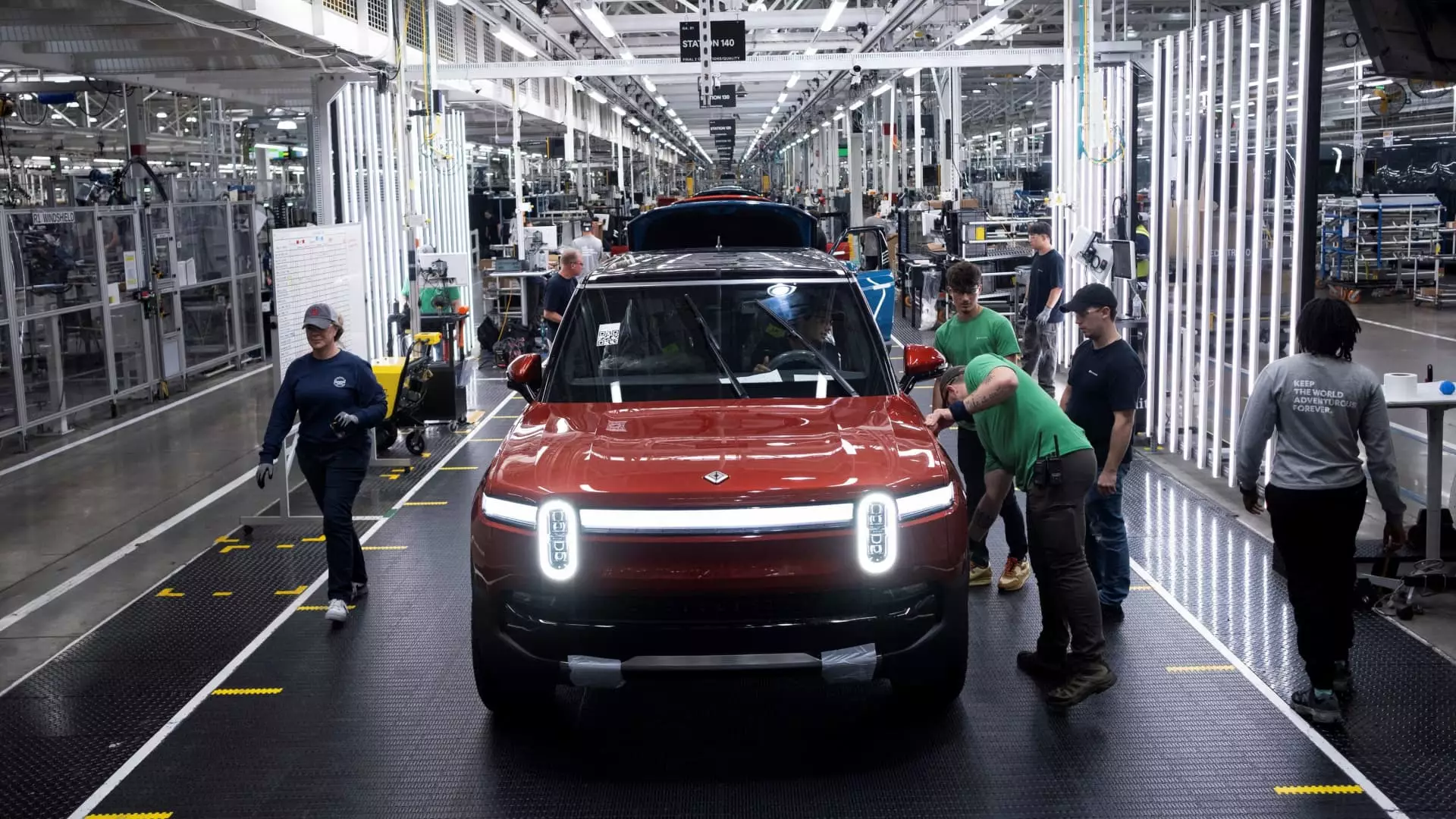Rivian Automotive, an electric vehicle startup that has received significant attention since its inception, is navigating turbulent waters following disappointing production figures in the third quarter of 2023. In early trading on Friday, the company experienced a drop of approximately 4% in its share price, marking another challenging moment for a firm that has already seen its stock plummet over 50% this year. This decline has only intensified as investors grapple with the implications of the latest production forecasts, which have been adjusted downwards for the upcoming year.
Production Disruptions and Their Implications
A critical factor behind this decline in share price is Rivian’s recent announcement regarding its production capabilities. The company has revised its production target for 2024, now aiming for just 47,000 to 49,000 units, a substantial drop from the earlier forecast of 57,000 units. This adjustment comes in response to a significant supply chain disruption due to a shortage of a shared component for its R1 series vehicles and the associated commercial vans. Rivian’s statement highlights that the challenges emerged in the third quarter and have only intensified recently, which raises concerns about the company’s ability to stabilize its operations moving forward.
The communication from Rivian indicated that the component in question relates to its in-house motors. However, company representatives have been tight-lipped about the specific nature of the shortages. This lack of transparency may further erode investor confidence, particularly given the high stakes associated with meeting production targets amid increasing competition in the electric vehicle sector.
Rivian CEO RJ Scaringe acknowledged the complexity and difficulty inherent in managing a multi-tiered supply chain during a recent Morgan Stanley investor conference, where he spoke about recent supplier challenges. His remarks point not only to the troubles Rivian is experiencing but also serve as a cautionary tale for the broader EV industry, which relies heavily on intricate supply chains that can be easily disrupted by multiple factors. The mounting issues at Rivian underscore the ever-present risks associated with scaling production in the dynamic and competitive landscape of electric vehicles.
Despite the setbacks, Rivian has maintained its delivery outlook for 2023, anticipating a modest year-over-year growth. The company expects its deliveries to land between 50,500 to 52,000 vehicles. However, with the production forecast for next year signaling potential slowdowns, some analysts remain cautious about the company’s long-term growth trajectory, particularly as it is surrounded by increasing competition from established automotive players like Tesla and General Motors.
In sum, Rivian’s challenges illustrate the precarious balance between ambition and reality in the electric vehicle market, and how fragile the fabric of production can be when faced with supply chain vulnerabilities. As the company works to navigate these challenges, it will need to assure investors and stakeholders of its capability to adapt and respond effectively to such disruptions, or risk further erosion of market confidence.

